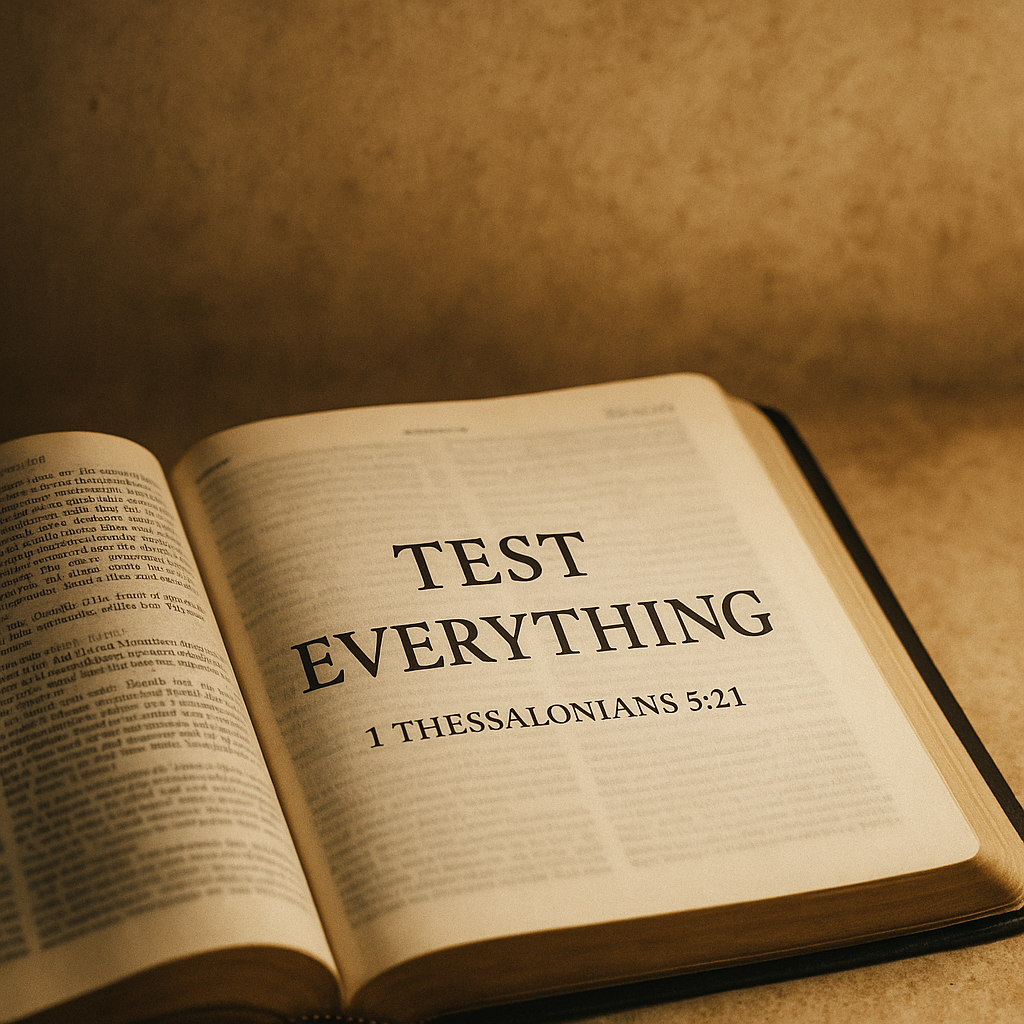⏱️ Estimated Reading Time: 4 min read
A Biblical Response to the Enneagram
Contending for the Word Q&A
Q: Is the Enneagram compatible with Christianity?
A: No. While the Enneagram is often marketed as a neutral personality tool, its origins, spiritual framework, and its increasing use in many churches are inconsistent with biblical teaching about sin, sanctification, and identity in Christ.
The Enneagram has become a wildly popular personality system in Christian circles. From conferences and devotionals to books and church trainings, it’s often presented as a gateway to self-discovery and spiritual growth. But as with any cultural trend, Christians must ask: Where did it come from? And more importantly, does it align with the Word of God?
The Enneagram’s roots are not found in Christian theology or even neutral psychological theory. Historically, it draws heavily from occult and mystical sources. George Gurdjieff, a Russian mystic in the early 20th century, introduced the Enneagram symbol in esoteric teachings. Later, Oscar Ichazo—a key figure in developing the personality typology—claimed to receive his Enneagram insights from spirit guides, entities he described as “higher beings.” Claudio Naranjo, another prominent contributor, openly admitted that portions of the system were revealed to him through automatic writing, a practice commonly associated with the occult.
These origin stories are not spiritually neutral. They reflect a worldview centered on self-realization and inner transformation through mystical knowledge, rather than repentance and faith in the finished work of Christ. When such foundations are repackaged and brought into the Church, the result is confusion, compromise, and in many cases, syncretism.
Some might argue, “But isn’t the Enneagram just a tool? A framework to help people grow?” While it may appear as a benign personality system, the Enneagram is far more than a typology. It presents a spiritual path to transformation, one that redefines sin not as rebellion against a holy God, but as a “false self” that must be transcended. This undermines the biblical teaching that sin is moral guilt and offense against God, and that transformation comes not from discovering our type, but from the renewing work of the Holy Spirit.
Scripture offers a far different view of the human condition. The heart, apart from Christ, is deceitful above all things and desperately sick (Jeremiah 17:9). True change comes not from deeper self-awareness but through the sanctifying power of the Spirit (2 Corinthians 3:18). Our identity is not found in personality or performance but is hidden with Christ in God (Colossians 3:3).
When churches and Christian counselors adopt the Enneagram as a diagnostic tool, they often unintentionally shift the focus of spiritual growth away from Christ and toward the self. This self-focus diminishes the seriousness of sin, confuses psychological categories with biblical sanctification, and opens the door to blending truth with error. The apostle Paul offers a sober warning in Colossians 2:8: “See to it that no one takes you captive by philosophy and empty deceit, according to human tradition, according to the elemental spirits of the world, and not according to Christ.”
So how should Christians respond? We must exercise biblical discernment, especially with popular trends that come wrapped in spiritual language. Instead of seeking transformation through personality frameworks, believers are called to find their identity in the gospel. Real change comes not through knowing ourselves more deeply, but through knowing Christ more fully. Romans 12:2 reminds us to be transformed by the renewing of our minds, which only happens through the Word of God and the work of the Spirit.
For those who want to dig deeper into this topic, I recommend the work of Marcia Montenegro, especially her article “The Enneagram: A Christian Perspective or Occult Tool?” A helpful resource that combines both theological critique and cultural analysis is Richard Rohr and the Enneagram Secret: Veinot, Don, Veinot, Joy, Montenegro, Marcia, House, H. Wayne.
In a time when spiritual shortcuts are common, and discernment is often dismissed as divisiveness, we must be rooted in truth. The gospel doesn’t call us to discover our true type—it calls us to die to self and live in Christ.
Dave Jenkins is happily married to his wife, Sarah. He is a writer, editor, and speaker living in beautiful Southern Oregon. Dave is a lover of Christ, His people, the Church, and sound theology. He serves as the Executive Director of Servants of Grace Ministries, the Executive Editor of Theology for Life Magazine, the Host and Producer of Equipping You in Grace Podcast, and is a contributor to and producer of Contending for the Word. He is the author of The Word Explored: The Problem of Biblical Illiteracy and What To Do About It (House to House, 2021), The Word Matters: Defending Biblical Authority Against the Spirit of the Age (G3 Press, 2022), and Contentment: The Journey of a Lifetime (Theology for Life, 2024). You can find him on Facebook, Twitter, Instagram, Youtube, or read his newsletter. Dave loves to spend time with his wife, going to movies, eating at a nice restaurant, or going out for a round of golf with a good friend. He is also a voracious reader, in particular of Reformed theology, and the Puritans. You will often find him when he’s not busy with ministry reading a pile of the latest books from a wide variety of Christian publishers. Dave received his M.A.R. and M.Div through Liberty Baptist Theological Seminary.




